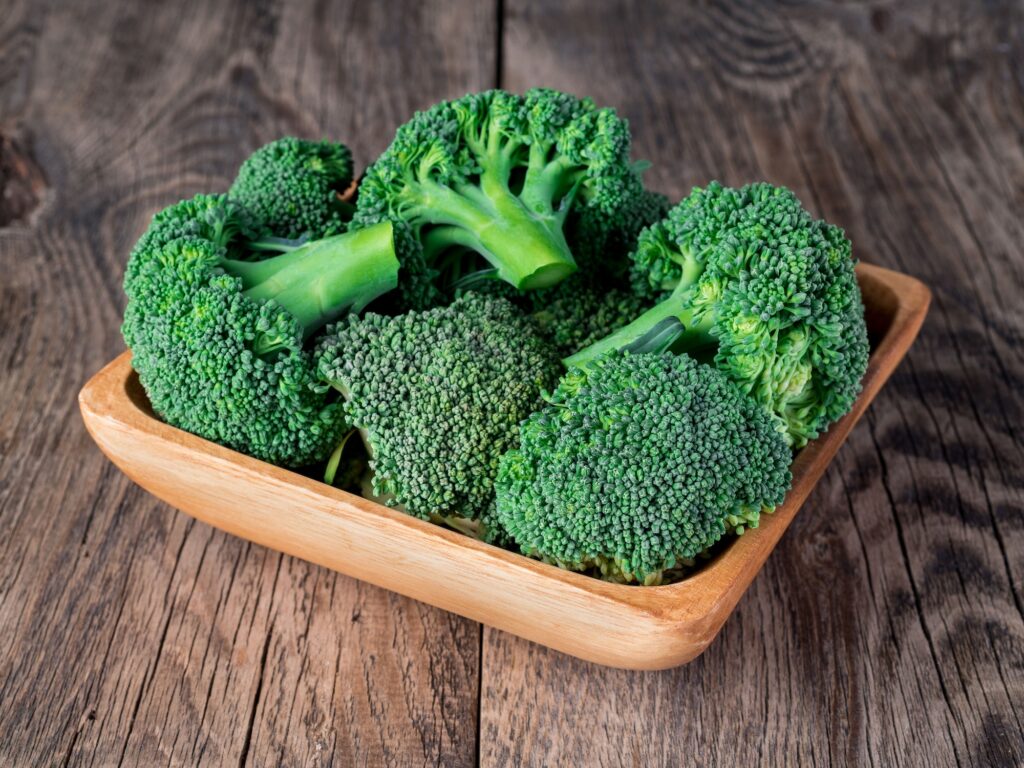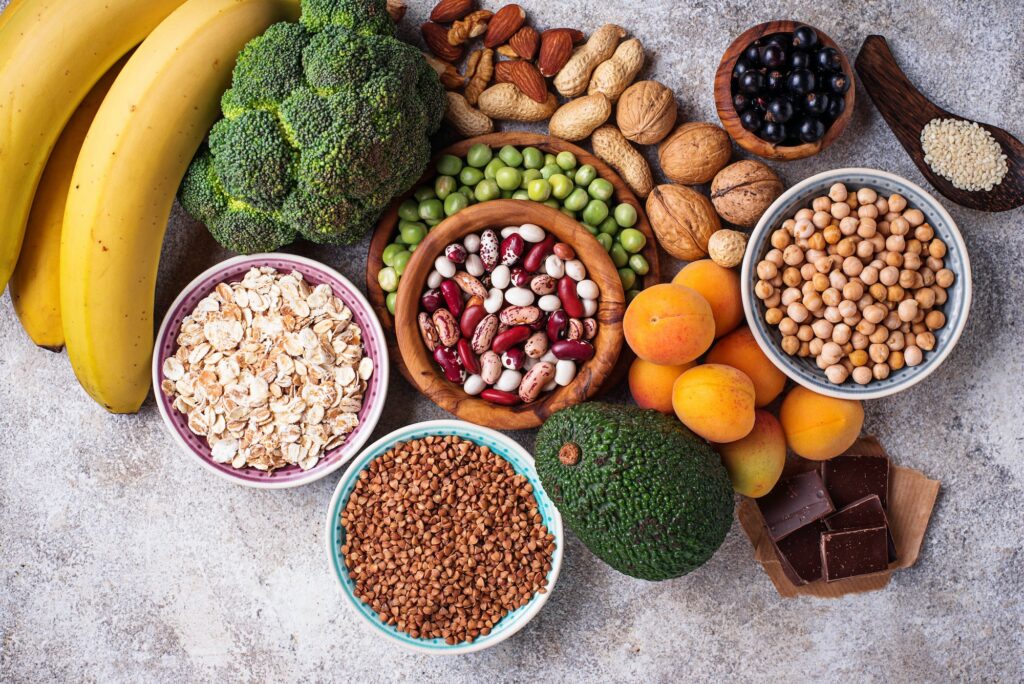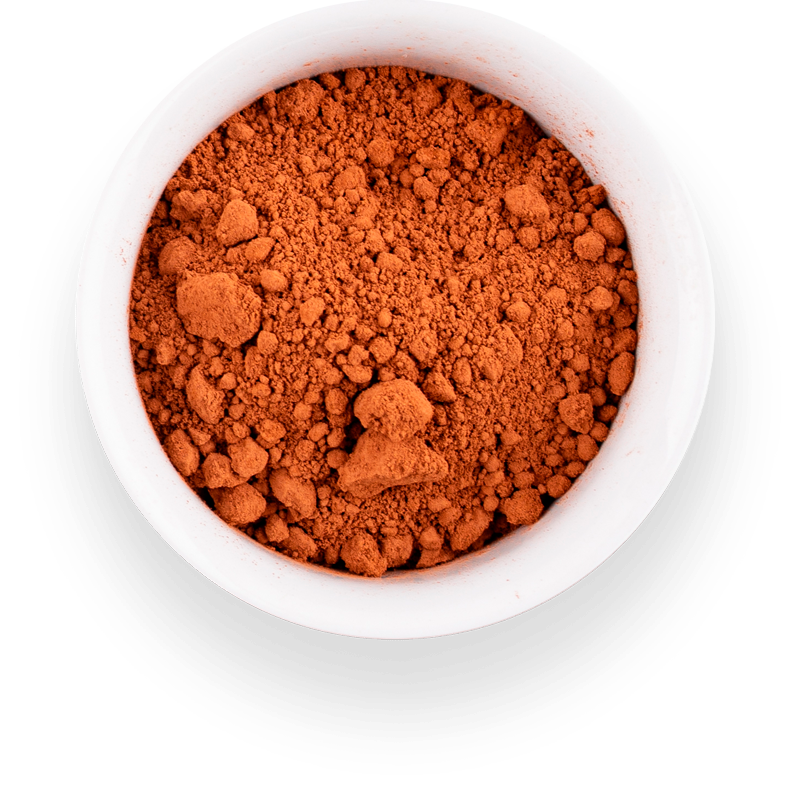Achieving hormonal balance is crucial for overall health and well-being. Hormones play a vital role in regulating various bodily functions, including metabolism, mood, reproductive health, and immune system function. However, factors such as stress, poor diet, lack of exercise, and environmental toxins can disrupt hormonal balance, leading to a range of health issues.
Fortunately, several natural substances, such as honey, turmeric, kale, and DIM (Diindolylmethane), can help restore hormonal equilibrium and promote optimal health.
Honey

A natural sweetener derived from the nectar of flowers, is more than just a delicious treat. It contains various bioactive compounds that offer numerous health benefits, including hormonal regulation. Raw honey is rich in antioxidants that combat oxidative stress and reduce inflammation, helping to restore hormonal balance. Additionally, honey possesses antibacterial properties, which may promote a healthy gut microbiome. A balanced gut microbiome is essential for optimal hormone production and metabolism.
Turmeric

A vibrant yellow spice commonly used in Indian cuisine, has gained significant attention for its potent anti-inflammatory properties. The active compound in turmeric, known as curcumin, has been shown to modulate hormone levels and improve hormone sensitivity. Curcumin’s
anti-inflammatory effects can reduce inflammation-related hormonal imbalances, particularly in conditions such as polycystic ovary syndrome (PCOS) and insulin resistance. Curcumin has also been found to interact with estrogen receptors, affecting estrogen signaling. It may act as an estrogen agonist or antagonist, depending on the context – this modulation of estrogen activity can help balance estrogen levels and reduce the risk of estrogen-related disorders.
Kale

A leafy green vegetable that is a nutritional powerhouse that can positively impact hormone health. Rich in vitamins, minerals, and phytonutrients, kale supports the liver’s detoxification processes. The liver plays a vital role in hormone metabolism, and by promoting liver health, kale aids in the elimination of excess hormones from the body. Additionally, kale contains indole-3-carbinol, a compound that helps balance estrogen levels, reducing the risk of estrogen dominance and associated hormonal disruptions.
DIM

Short for Diindolylmethane, is a compound found in cruciferous vegetables like broccoli, cauliflower, and Brussels sprouts. It is renowned for its ability to support hormonal balance, particularly in relation to estrogen. DIM helps regulate estrogen metabolism, promoting the conversion of harmful forms of estrogen into beneficial metabolites. Diindolylmethane (DIM) is a compound derived from indole-3-carbinol (I3C), which is found in cruciferous vegetables such
as broccoli, kale, and Brussels sprouts. DIM has gained attention for its potential effects on estrogen metabolism and balance. The exact mechanism of action of DIM on estrogen is still being investigated, but several mechanisms have been proposed:
- Estrogen Metabolism: DIM is believed to influence estrogen metabolism by promoting the conversion of estrogen into beneficial metabolites. It can shift the balance of estrogen metabolism towards the production of 2-hydroxyestrone (2-OHE1) and 2-methoxyestrone
(2-MeOHE1), which are considered less potent and have potentially beneficial effects. This shift may help reduce the activity of more potent and potentially harmful estrogen metabolites, such as 16α-hydroxyestrone (16α-OHE1).
- Estrogen Receptor Activity: DIM has been shown to interact with estrogen receptors (ERs). It can act as a selective estrogen receptor modulator (SERM), exhibiting both agonistic and antagonistic effects on estrogen receptors, depending on the tissue and context. DIM can bind to ERs and influence their transcriptional activity, leading to various effects on estrogen signaling pathways.
- Anti-Aromatase Activity: DIM has been found to inhibit the activity of the enzyme aromatase, which converts androgens into estrogens. By inhibiting aromatase, DIM may help reduce the conversion of androgens into estrogen, thus potentially impacting estrogen levels.
- Anti-Inflammatory Effects: DIM possesses anti-inflammatory properties, and chronic inflammation can disrupt estrogen balance. By reducing inflammation, DIM may indirectly contribute to estrogen balance by mitigating inflammatory processes that can affect estrogen levels.
This is crucial because imbalances in estrogen levels can contribute to conditions such as fibroids, endometriosis, and breast cancer. By promoting the balance of estrogen metabolites, DIM can reduce the risk of these conditions and support overall hormonal health.
Cinnamon

This is a popular spice known for its distinctive flavor and aroma. Beyond its culinary uses, cinnamon has been recognized for its potential health benefits, particularly in relation to blood sugar control and insulin modulation. The mechanism by which cinnamon affects blood glucose involves several potential factors. Cinnamon may enhance insulin sensitivity, allowing cells to take up glucose more efficiently. It has been shown to increase the expression of glucose transporters, particularly GLUT4, which is responsible for glucose uptake into cells. By increasing the expression and translocation of GLUT4, cinnamon can enhance glucose uptake by cells and improve insulin sensitivity. It can also delay gastric emptying, slowing down the release of carbohydrates into the bloodstream. Cinnamon may inhibit enzymes involved in carbohydrate digestion such as alpha glucosidase, leading to a more gradual glucose release. Furthermore, it can stimulate glycogen synthesis, aiding in the removal of excess glucose from the bloodstream. Additionally, cinnamon’s antioxidant and anti-inflammatory properties may contribute to
improved insulin function. However, further research is needed to fully elucidate the precise mechanisms underlying cinnamon’s effects on blood glucose.
Inulin

This is a type of dietary fiber that is commonly found in various plant-based foods, such as chicory root, Jerusalem artichokes, and onions. It belongs to a group of fibers known as fructans. While inulin does not directly impact hormone balance, its effects on the gut can indirectly influence hormonal health.
- Gut Microbiota: Inulin acts as a prebiotic, meaning it serves as a food source for beneficial bacteria in the gut. It is not digested by human enzymes, but rather, it reaches the colon intact, where it is fermented by gut bacteria. This fermentation process promotes the growth of beneficial bacteria, particularly those belonging to the Bifidobacteria and Lactobacilli species. A healthy and diverse gut microbiota is essential for optimal hormone metabolism and regulation.
- Gut-Brain Axis: The gut is often referred to as the “second brain” due to its intricate connection with the central nervous system. The gut and brain communicate through a bidirectional pathway known as the gut-brain axis. The gut microbiota plays a crucial role in this communication. By promoting a healthy gut microbiota, inulin may indirectly impact hormone balance by influencing the gut-brain axis and supporting optimal brain function.
- Blood Sugar Regulation: Inulin has been shown to have a positive effect on blood sugar regulation. As a soluble fiber, inulin slows down the digestion and absorption of carbohydrates, leading to a more gradual release of glucose into the bloodstream. This can help prevent blood sugar spikes and promote better insulin sensitivity, indirectly supporting hormone balance.
- Satiety and Weight Management: Inulin has been associated with increased feelings of fullness and satiety. By promoting satiety, inulin consumption may help regulate appetite and prevent overeating, which can have an impact on hormone balance, particularly hormones involved in appetite regulation such as leptin and ghrelin.
Ginger

This is a spice derived from the rhizome of the Zingiber Officinale plant, has been recognized for its potential anti-inflammatory properties and its potential influence on hormone balance. The mechanisms by which ginger exerts these effects are multifaceted. Ginger contains several bioactive compounds, including gingerols and shogaols, which possess anti-inflammatory properties. These compounds inhibit various inflammatory pathways in the body, including the production of pro-inflammatory cytokines and the activation of inflammatory enzymes like cyclooxygenase (COX) and lipoxygenase (LOX). By reducing inflammation, ginger may help maintain a healthier hormonal balance. It also is rich in antioxidants that help neutralize harmful free radicals and reduce oxidative stress. Oxidative stress can contribute to chronic inflammation and disrupt hormone balance. By reducing oxidative stress, ginger may indirectly support hormonal health. Furthermore, some studies have suggested that ginger may have
estrogenic activity, meaning it may interact with estrogen receptors in the body. This interaction can influence estrogen signaling and potentially help maintain estrogen balance. However, more research is needed to fully understand the extent and mechanisms of ginger’s
estrogen-modulating effects.
Blueberries

These are small, vibrant fruits that pack a powerful punch when it comes to promoting anti-inflammatory and gut health benefits. These berries are rich in antioxidants, particularly flavonoids like anthocyanins, which give them their distinct blue color.
Anthocyanins have been shown to reduce inflammation in the body, helping to alleviate symptoms of chronic conditions such as arthritis and cardiovascular diseases.
Additionally, blueberries contain dietary fiber, which aids in promoting a healthy gut by supporting regular bowel movements and nourishing beneficial gut bacteria. The antioxidants found in blueberries, such as vitamins C and E, work to neutralize harmful free radicals that can disrupt hormone production and function. Moreover, blueberries contain phytochemicals, such as resveratrol and quercetin, which have been linked to hormonal regulation and balance. The combination of antioxidants and fiber in blueberries makes them a fantastic choice for improving overall well-being and maintaining a healthy digestive system.
Vitamin B6

Also known as pyridoxine, plays a crucial role in hormone balancing and gut health. This essential vitamin is involved in the production and regulation of various hormones, including serotonin, melatonin, and dopamine. By supporting optimal hormone synthesis and function, vitamin B6 helps maintain hormonal balance throughout the body.
Additionally, vitamin B6 aids in the metabolism of amino acids, which are the building blocks of neurotransmitters involved in mood regulation. As for gut health, vitamin B6 is important for the metabolism and absorption of nutrients in the digestive system. It supports the production of enzymes that facilitate the breakdown and utilization of proteins, carbohydrates, and fats. This nutrient also contributes to the maintenance of a healthy gut microbiome, promoting the growth of beneficial bacteria. Overall, adequate intake of vitamin B6 is crucial for hormone balance and optimal gut health.
Magnesium

This is a vital mineral that plays a significant role in hormone balancing and gut health. It acts as a cofactor in numerous enzymatic reactions involved in hormone synthesis, regulation, and function. Magnesium helps maintain the balance of hormones such as insulin, thyroid hormones, and cortisol, which are essential for metabolism, energy production, and stress response. Additionally, magnesium promotes relaxation and supports healthy sleep patterns, indirectly influencing hormone regulation.
Furthermore, It aids in muscle relaxation, including the smooth muscles of the gastrointestinal tract, helping to regulate bowel movements and prevent constipation. Magnesium acts as a coenzyme for various digestive enzymes, facilitating the breakdown and absorption of nutrients in the gut. It also supports the growth of beneficial gut bacteria. Ensuring an adequate intake of magnesium through a balanced diet or supplementation can contribute to hormone balance and promote a healthy gut.
Calcium

This plays a significant role in hormone balancing, gut health, and anti-inflammation. Regarding hormone regulation, calcium is involved in the release and function of various hormones, including those related to the endocrine system and neurotransmitter activity such as PTH and Calcitonin. It is also a co-factor for enzymes involved in synthesis, production, and conversion of hormones such as Insulin, thyroid hormones, and reproductive hormones. It also contributes to the maintenance of a healthy digestive system. It aids in muscle contraction and relaxation in the GI tract.
Additionally, calcium supports the integrity of the gut lining, helping to prevent intestinal permeability and promote gut barrier function. Lastly, It can help reduce inflammation in the body by modulating immune responses and suppressing the production of inflammatory markers. This anti-inflammatory effect may contribute to the prevention and management of chronic inflammatory conditions.
Why is it so important?
Maintaining balance in hormone levels is essential for both men and women. Hormonal imbalances can lead to a wide range of symptoms, including fatigue, weight gain, mood swings, irregular periods, low libido, and fertility issues. Incorporating honey, turmeric, kale, blueberry and DIM into your diet can help address these imbalances and promote optimal hormone function.
However, it’s important to note that while these natural substances can be beneficial, they should be used as part of a holistic approach to hormonal health. Lifestyle factors such as stress management, regular exercise, and a balanced diet are also crucial for maintaining hormonal balance.
In conclusion, achieving and maintaining hormonal balance is essential for overall health and well-being. Honey, turmeric, kale, blueberry and DIM are natural substances that can aid in restoring hormonal equilibrium. Their antioxidant, anti-inflammatory, and hormone-regulating properties make them valuable additions to a balanced diet. However, it’s important to consult with a healthcare professional before making any significant changes to your diet or lifestyle, particularly if you have underlying health conditions or are taking medications. By embracing a comprehensive approach to hormonal health, you can support your body’s natural balance and enjoy the benefits of improved well-being.
A message from our Physician at Armonia Sciences
As a physician, I want to emphasize the vital role of hormone and gut balance in maintaining overall health and well-being. Hormones act as chemical messengers, regulating various processes in the body, including metabolism, growth, reproduction, mood, and more. Similarly, the gut plays a critical role in digestion, nutrient absorption, and immune function. When hormone and gut balance is disrupted, it can lead to a range of health issues, including hormonal imbalances, digestive disorders, mood disturbances, immune dysfunction, and chronic inflammation. These disruptions can have a significant impact on one’s quality of life and long-term health. Maintaining hormone balance involves factors such as proper nutrition, regular exercise, stress management, and adequate sleep. A healthy gut, on the other hand, requires a balanced diet rich in fiber, prebiotics, and probiotics, as well as the avoidance of harmful substances like excessive alcohol and processed foods.
By promoting hormone and gut balance, we can support optimal physical and mental health. This includes reducing the risk of chronic diseases such as diabetes, obesity, cardiovascular conditions, and certain cancers. Moreover, a balanced hormone and gut environment positively impacts energy levels, mood stability, cognitive function, and immune system resilience. As a physician, I encourage you to prioritize hormone and gut balance in your lifestyle choices. Consult with healthcare professionals for personalized guidance, especially if you have specific concerns or existing health conditions. Together with Armonia Sciences, we can work towards achieving and maintaining a healthy and balanced life.
Kamal Nayyar, M.D.
ABIM Board Certified in Internal Medicine and Nephrology



